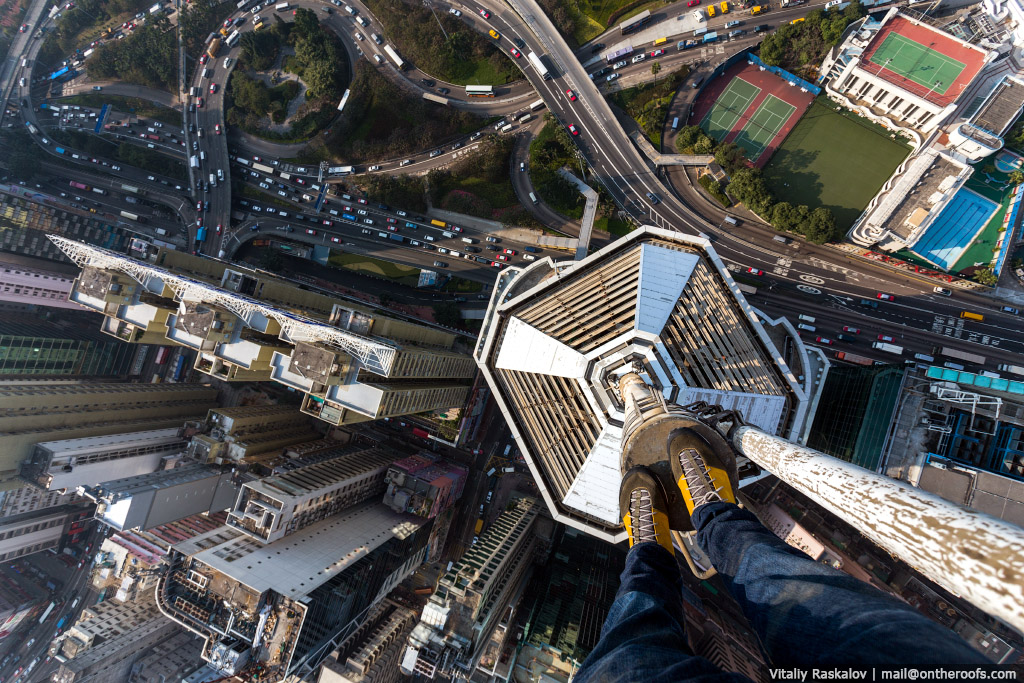Things tagged travel:
The Mauritania Railway: Backbone of the Sahara
The Mauritania Railway: Backbone of the Sahara is a documentary film directed by MacGregor.
How Trust Shapes Nations' Safety Rules
Veronique Greenwood in The Alantic:
When I moved to China nearly two years ago, one of the first things I bought was a bicycle. I live on a university campus, where everyone rides, and the bike was cheap: $17 for an ancient Five Rams cruiser, with a lively color scheme of teal and rust. I used to cycle to work when I lived in New York, dodging tourists and threading in between delivery trucks. But the moment I pulled out onto a street in China, it became clear that this was going to be a different experience.
Reminds me of an argument I got into with someone over the asinine Seattle bike helmet law. People think our (US) way is the only way to do things despite the fact that many people in the world do things the other way, and seems to go fine for them. Read this and absorb some of that. Stepping back, where we choose (have been taught) to place our trust is kinda my focus these days. Why do we want to place that trust in the government, despite the evidence of better systems to trust? No reason the FDA needs to be a government org, your doctor and insurance company could agree on a more able org. Same for food safety, occupational licensing, etc.
A Sprawl of Ghost Homes in Aging Tokyo Suburbs
Jonathan Soble in the NYT:
The houses are a steal for the rare souls who will have them. But just one has been sold through the home bank so far, a 60-year-old single-story wooden home with a patch of garden that was listed for 660,000 yen, or $5,400. Places farther up the hill can be had for the equivalent of just a few hundred dollars. Four have been rented, including one to students in a nursing-care program at a nearby college who receive a discount in return for checking up on elderly people in the area.
Other towns have tried their own creative solutions, including offering cash payments to outsiders who move in and buy unoccupied homes. A few have succeeded in attracting pockets of artists and freelance workers, who stay tethered by the Internet to their urban clients.
Southeast Asia's Best Underground Clubs
Night clubs in Southeast Asia are mostly focussed on high-end clubbing, big-room EDM, bottle service and so on. For those people who seek this kind of experience, they could have their best night out, since this industry is booming. But there’s always one our two outsiders that are hungry for new music that they’ve never heard before. Looking for new places, where it doesn’t matter what you are wearing, where you’re from or how much money you have - places where the only thing that matters is the music! Those kind of clubs are hard to find in Asia, but if you’re looking deep enough into the scene you might be lucky enough to stumble upon one. As a matter of fact, underground clubs should’nt be listed in a top list, so you could find out for yousrelf, but in case you need a little help, we’ve enlisted a few that you might wanna check out during your Asia trip.
Can you guess where people are from based on their accents?
2 times 8 for 12, then one perfect score, woot.
Hong Kong | ontheroofs
During the last one and a half years, we have visited Hong Kong several times. We have been to so many places and now I have to admit that Hong Kong is a place where I would like to live. A year and a half ago, after visiting Singapore, I assumed that it was the real paradise, but I was mistaking.
Congo from the Cockpit
William Langewiesche in Vanity Fair:
When a country the size of Western Europe has only 300 miles of paved roads, almost anything with two wings, a tail, and an engine will do—aviation codes be damned. In the Democratic Republic of the Congo, where old airplanes go to die, a family of Indian immigrants has survived 50 years of dictatorship, war, and plunder, and founded a linchpin of the precarious economy: a charter outfit called Business Aviation. On the fish-for-diamonds flight, among other feats of turboprop ingenuity, William Langewiesche meets some of the continent’s most unflappable pilots.
Kashiwazaki Turkish Culture Village and the psychology of nuclear power
Kashiwazaki Turkish Culture Village was a demented brainchild—perhaps the most demented brainchild, although the competition is brutal—of a man fiercely philoprogenitive of demented brainchildren, Ryutaro Omori (1928-2004), the boss of Niigata Chuo Bank, a second-tier regional bank that had only graduated from mutual savings & loan to orthodox bank status in 1989, a man so tone-deaf to the clanging cymbals of the economic orchestra that he failed to hear that the Bubble had burst and, brimful with all the champagne optimism of which our species is so effortlessly capable, decided in the early 1990s to finance not one, but three theme parks, inspired by his Golden Ring concept, in which he pictured a great golden ring laid across the map of central Honshu and in which the theme parks, running in an arc from Niigata in the northwest to Mount Fuji in the southeast, would sparkle like diamonds on a ring.

